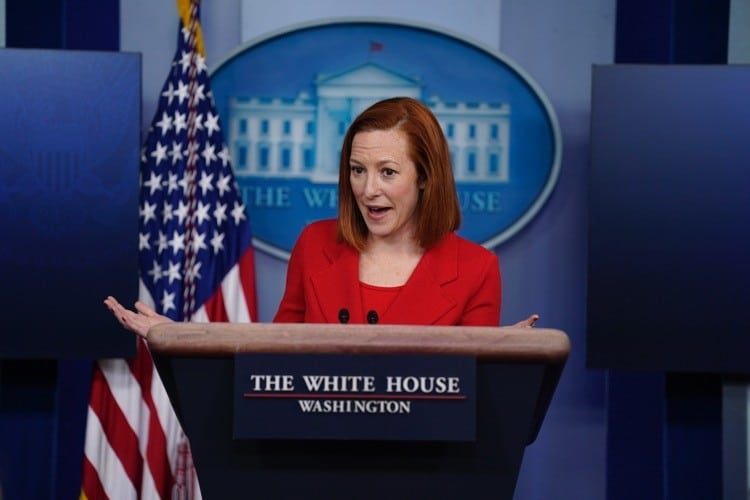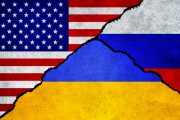
Two Biden administration officials recently claimed that the United States does not impose sanctions on leaders of foreign countries, an assertion so patently false that even the mainstream media was forced to call them on it.
The subject came up Sunday on CNN’s State of the Union during a discussion of the administration’s Friday decision to exempt Saudi Crown Prince Mohammed bin Salman from sanctions it had slapped on other Saudi officials after releasing a declassified intelligence report claiming that bin Salman had approved the 2018 assassination of journalist Jamal Khashoggi. The move appeared to contradict Biden’s campaign promise to make “senior Saudi leaders” “pay the price” for their involvement in Khashoggi’s murder.
Asked about this apparent contradiction by CNN’s Dana Bash, White House Press Secretary Jen Psaki tried to deflect the question by saying the administration was “recalibrat[ing]” the United States’ relationship with Saudi Arabia “and ensuring that we are holding to account … the human rights abuses of this government, by word and by action.”
Bash, however, pointed out that the administration was sanctioning lower-level officials while leaving bin Salman untouched. “Isn’t punishing them like punishing the hit man and not the mob boss who actually put out the hit?” she asked.
Psaki replied, “Historically, and even in recent history, Democratic and Republican administrations, there have not been sanctions put in place for the leaders of foreign governments where we have diplomatic relations and even where we don’t have diplomatic relations.”
The next day, CNN demolished Psaki’s claim. “It’s not true that there ‘have not been sanctions put in place’ against the leaders of foreign governments even in the recent past,” wrote fact-checker Daniel Dale. “In fact, all three of Biden’s predecessors who took office in the 21st century imposed direct sanctions on foreign leaders.”
Dale listed some of the foreign leaders recent administrations have sanctioned:
Iranian Supreme Leader Ali Khamenei and Venezuelan President Nicolas Maduro, who were sanctioned by President Donald Trump;
North Korean dictator Kim Jong Un, Syrian President Bashar al-Assad and Libyan then-dictator Moammar Gadhafi, who were sanctioned by President Barack Obama;
Myanmar’s then-leader Than Shwe, Belarusian President Alexander Lukashenko and Zimbabwean President Robert Mugabe, who were sanctioned by President George W. Bush.
The United States had diplomatic relations with some, but not all, of these countries at the time the sanctions were applied.
“Psaki’s claim,” Dale concluded, “went too far.”
Although Psaki would later amend her assertion to say the United States does not “typically” sanction foreign leaders, the administration continued to insist that her initial claim was substantially true. In a Monday press briefing, Associated Press reported Matt Lee asked State Department spokesman Ned Price whether he agreed with Psaki’s Sunday remark.
“I stand by what my colleague said,” Price replied.
“The reason I ask that is that’s just simply not true,” said Lee, who went on to name several countries whose leaders the United States sanctioned while still maintaining diplomatic relations with their governments.
Price, too, fell back on the “recalibration” line, refusing to concede Lee’s point.
Another reporter asked Price why he thought “bin Salman will never back an action like this, to murder a dissident, if he himself isn’t facing any direct consequence.”
“Again,” said Price, “we feel that we can have the most influence over this partnership when it is cast as a recalibration and not a rupture. Were there to be something more dramatic and something more drastic than what we have talked about, I think the influence that we would have over any foreign leader, be it Mohammed bin Salman or any other world leader in question, would be greatly diminished.”
None of this is to say that sanctions are a good idea. A noninterventionist president would eschew sanctions, an act of war, against any nation (or its leaders) with which Congress has not declared war.
But Biden, as his voting record and his recent airstrikes on Syria attest, is hardly averse to meddling in foreign countries. Instead, continuing the Washington tradition of kowtowing to the Saudi royal family, he has chosen to abandon his campaign pledge to punish them for Khashoggi’s murder — even if he has to claim false historical “facts” to explain away his actions.


